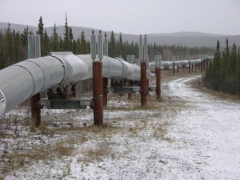Challenges for a comprehensive European energy security policy for gas

Date
3 March 2010
Location
Brussels
Recent events (energy) and crises (economic and financial, environmental, etc.) have jolted the European Union into debating the development of a comprehensive European Energy Security Policy for Gas. Furthermore, the documents from the European Council, the European Commission and the European Parliament since 2006/07 all call for a renewed energy policy. Several current developments indeed justify the realization of an enhanced energy policy for Europe: Europe’s strong feeling of insecurity has increased tenfold due to the repetitive Ukraine-Russia gas disputes; the tremendous increase, then fall, of energy prices; the uncertain and controversial state of energy reserves; the disequilibrium between the increase of demand and the contraction of the offer; the reliance on chronically unstable energy suppliers; and finally Europe’s increasing energy dependence, together with a decrease of its indigenous energy production and a limited combined contribution from renewable and nuclear energies.
In this unstable energy landscape of the twenty-first century, the question for the European Union is especially how current developments can match this scenario. The future of its energy policy has become a major long-term geopolitical, economic, environmental and social concern for Europe. However, it remains difficult to see the European Union as a vast homogeneous consumer and importer block, and subsequently as a coherent and major actor in that field. Until now, the national energy sectors and policies of the twenty-seven European Member States reflect high levels of disparity and asymmetry, with different energy cultures, structures and external policies.
Against this background, EGMONT – The Royal Institute for International Relations and the D-GROUP Germany are preparing a conference in Brussels together with politicians, industry, energy experts and EU/international institutions. The aim of the conference is to identify possible approaches regarding energy security for gas, and to look at different level of governance for energy (EU, national and other decentralized). In focusing on the European energy policy, our one day conference will be framed around the specific issue of security of supply under three dimensions: Internal dimension of energy security for gas: storage, crisis management and other measures (Session 1), External dimension of energy security for gas: diversification and infrastructures (Session 2) and Creating the adequate conditions for energy security: the need for Investments and a Research, Development & Innovation Strategy (Session 3).
–Legislative initiatives in the field of energy security for gas, Ulrike Rackow, Principal Administrator, Secretariat of the Council, Unit for Policy and Politics of Energy.
–What relation between EU and IEA mechanisms?, Didier Houssin, Director of Energy Markets and Security, International Energy Agency.
–What responsibility for the private industry?, Dr. Gerhard Koenig, Chairman of the Board of Managing Directors, WINGAS GmbH & Co KG and Member of the Board of Executive Directors, Wintershall Holding AG.
–Competitive multi-site sourcing of natural gas from an industrial perspective, Steven Luyten, Energy Manager, INEOS.
–What role for EU legislator?, Herbert Reul, Chairman of ITRE Committee, European Parliament.
–Securing gas supply for Europe: current status of pipeline project through the Baltic Sea, Sebastian Sass, Head of EU Representation, Nord Stream AG.
–Development and innovative strategies for TSO (transmission system operators), Ralph Bahke, Managing Director, ONTRAS – VNG Gastransport GmbH.
–The need for investments, Angela Cleveland, Commercial Director, Upstream, Scandinavia Shell Upstream International.
(Photo credit: zieak, Flickr)